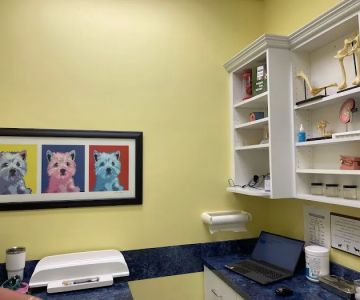How to Apply to Veterinary School: A Step-by-Step Guide
Becoming a veterinary doctor is a dream for many animal lovers. The path to veterinary school can be challenging, requiring a mix of strong academic qualifications, practical experience, and a genuine passion for animal health. If you’re considering applying to veterinary school, this guide will provide you with all the necessary steps and tips to successfully navigate the application process.
1. Understand the Requirements for Veterinary School
The first step in applying to veterinary school is understanding the essential prerequisites. While each veterinary school may have its own specific set of criteria, most require applicants to have completed a bachelor's degree with a strong emphasis on science courses such as biology, chemistry, physics, and mathematics. Additionally, veterinary schools typically require a minimum GPA, often between 3.0 and 3.5. It is crucial to research each school’s specific admission requirements and make sure that your academic background aligns with these expectations.
2. Gain Practical Experience with Animals
Veterinary schools place significant weight on hands-on experience with animals. This experience can come from working or volunteering in animal shelters, zoos, veterinary clinics, farms, or wildlife sanctuaries. The more diverse your experience, the better. Veterinary schools want to see that you have a well-rounded understanding of animal care, and hands-on experience shows that you are genuinely committed to the field. Make sure to document all your work and volunteer hours, as these will be required when submitting your application.
3. Prepare for the GRE or Other Entrance Exams
While not all veterinary schools require the Graduate Record Examination (GRE), many do, and some may also have their own entrance exams. The GRE tests your knowledge in areas like verbal reasoning, quantitative reasoning, and analytical writing. Adequate preparation for this exam is vital, as the scores are an essential part of your application. Other schools may require the Veterinary College Admission Test (VCAT), so ensure you know which exams are needed for your chosen schools and allow enough time for preparation.
4. Submit Letters of Recommendation
Letters of recommendation are another crucial part of your veterinary school application. These letters should come from individuals who can speak to your academic abilities, character, and experience working with animals. Ideally, your recommenders should be professors or supervisors from your animal-related work who are familiar with your strengths and commitment to the field of veterinary medicine. Strong, personalized letters will help set you apart from other candidates and give admissions committees valuable insight into your potential as a veterinary student.
5. Write a Compelling Personal Statement
Your personal statement is an opportunity to express why you want to become a veterinarian and what makes you uniquely suited for the profession. In your statement, you should explain your passion for animal care, share experiences that shaped your decision to pursue this career, and outline your long-term goals in veterinary medicine. It’s important to be sincere and authentic in your personal statement. Admissions officers read thousands of applications and are looking for candidates who are not only qualified but also deeply committed to making a difference in the world of animal health.
6. Apply to Veterinary Schools
Once you’ve prepared your academic credentials, gained the necessary experience, taken the required exams, and written your personal statement, it’s time to apply! Many veterinary schools use a centralized application system like the Veterinary Medical College Application Service (VMCAS), which allows you to apply to multiple schools at once. Be sure to follow each school’s application instructions carefully, and double-check that all required documents are submitted before the deadlines. Keep track of deadlines and fees to ensure you don’t miss any important steps in the application process.
7. Attend Interviews and Prepare for Acceptance
After submitting your application, some veterinary schools may invite you to attend an interview. The interview process can vary by school, but it typically involves questions about your academic background, experience with animals, and motivation for pursuing a career in veterinary medicine. You may also be asked situational questions to test your problem-solving and critical-thinking skills. Preparing for the interview is important, as it’s your chance to make a lasting impression on the admissions committee. Be confident, well-prepared, and ready to share why you are a great fit for veterinary school.
8. Consider Financial Aid and Scholarships
Veterinary school can be expensive, and many students seek financial aid to help fund their education. Look into various scholarships, grants, and loans available to veterinary students. Many schools offer their own scholarships, while there are also external organizations that support veterinary students financially. Applying for financial aid as early as possible will ensure you have the necessary funds to cover tuition and other expenses. Don’t hesitate to explore all options available to you for reducing the financial burden of veterinary school.
SEO Title: How to Apply to Veterinary School: A Step-by-Step Guide for Aspiring Vets
SEO Keywords: how to apply to veterinary school, veterinary school application process, how to become a vet, veterinary school requirements, apply for veterinary college
SEO Description: Learn how to apply to veterinary school with this detailed step-by-step guide. From preparing your application to acing your interview, discover the essential steps to becoming a veterinarian.











